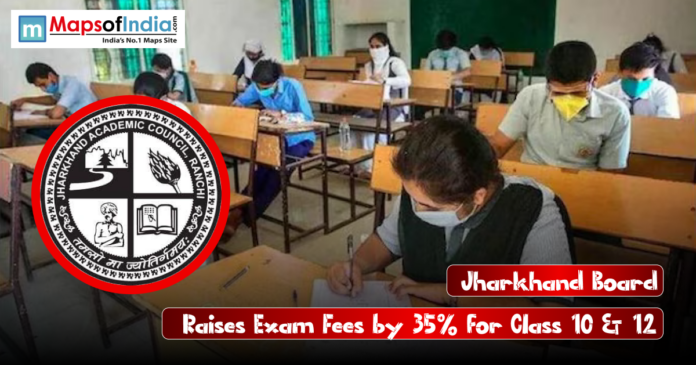A noticeable increase in the examination fee of both Matric (Class 10) and Intermediate (Class 12) students has been approved by the Jharkhand Academic Council (JAC) by 35 per cent to be charged since the board examination session in 2026. This was decided in a council meeting to update some of the academic charges in accordance with the administrative and operational demands. The relocation will affect lakhs of students in government, aided and private schools, the affiliations of which are with the JAC board.
The new structure has seen Matric students in reserved categories like girls, SC, ST, BC-1 and BC-2 to now pay 980 as the examination fee. In the case of students in the General and Economic Weak Section (EWS) categories, students who appear privately, the reformed examination fee is 1,180. In the case of Intermediate students, the fees were raised to 1100 in the case of the reserved category and 1400 in the case of General, EWS and private candidates.
As well as the new charges, the late submission surcharge has also been raised by JAC. Students who will not submit examination forms by the set deadline now need to pay an extra 500 as a late fee. The council has also revised the charges related to improvement and re-examination forms according to the new fee structure.
The officials of JAC said that the revision was required because of the increased administrative cost, logistical issues, and the high cost of conducting mass board examinations. The council indicated that money is needed to establish examination centres, print question papers, hire invigilators, implement digital assessment, and reinforce the security of examinations. They further stated that even with the increase, Jharkhand examination fees are still similar to or even less than the ones charged in a number of other states.
The ruling, however, has not been welcomed with a lot of enthusiasm. Although some school administrators feel that the revision was long overdue (considering inflation and escalating costs of operation), some groups of students and parents have shown concern regarding the added cost of operation. Some say that even a couple of hundred rupees is a challenge to economically weaker families living in rural and semi-urban areas. They have encouraged the state education department to think over the scholarship or reimbursement plans to minimize the effect on the needy students.
The new fees will apply to every student who will enrol in the board examinations in 2026, which will allow sufficient time for schools and candidates to adapt to the new regulations. The schools will have to come up with official circulars informing parents and students of the change within the next few weeks.










